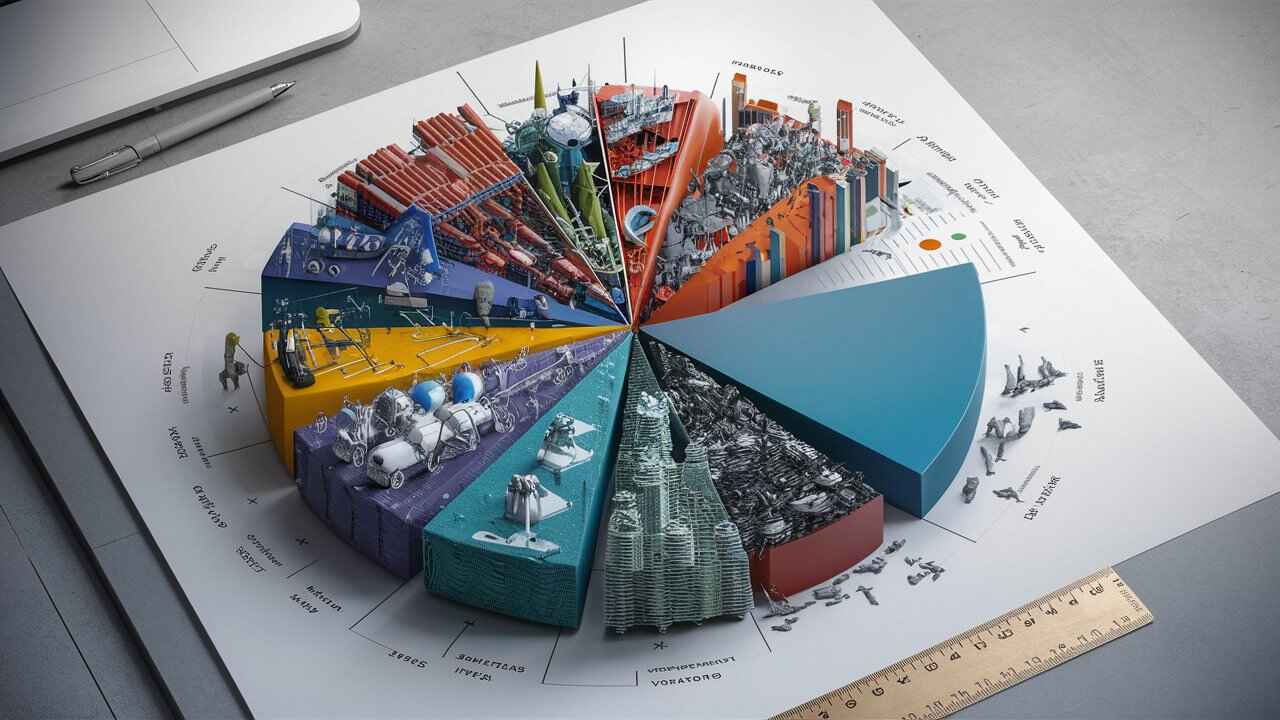Government infrastructure spending is a crucial component of public investment that supports the development, maintenance, and enhancement of various physical assets necessary for a functioning society.
Scope and Types of Infrastructure Projects
Transportation: This includes major infrastructure such as highways, bridges, tunnels, airports, and public transit systems. These projects are fundamental to enabling mobility and connecting regions.
Utilities: Involves the construction and upkeep of essential services including water supply systems, sewage treatment facilities, and power grids. These projects ensure that communities have access to vital resources and services.
Public Buildings: Includes structures such as schools, hospitals, and government offices. These facilities provide critical services and support the functions of government and public health and education.
Recreational Facilities: Encompasses parks, sports complexes, and community centers. These projects enhance the quality of life for residents by providing spaces for leisure, sports, and community activities.
Levels of Spending
Federal Procurement Level: At the federal level, large-scale projects with national significance, such as interstate highways and major bridges, are funded and managed. Federal agencies like the Department of Transportation (DOT) and the Army Corps of Engineers oversee these projects. Federal funding is often provided through grants or specific programs.
State Procurement Level: State-level spending addresses regional needs, including state highways, local bridges, and regional transit systems. State departments of transportation and state-level public works agencies are responsible for managing these projects. State and local governments contribute to funding through their budgets, bonds, and special taxes.
County and City Level
County Governments
County governments manage infrastructure projects that span multiple municipalities within the county. These include county roads and regional parks. They handle larger-scale projects that require coordination across various local jurisdictions.
City Governments
City governments focus on urban infrastructure needs, including city road repairs, local parks, and transit improvements. Their projects cater specifically to the needs of urban areas and aim to improve city services and amenities.
Participation and Procurement
Procurement Contractors
Construction Firms: These companies specialize in building infrastructure and include general contractors and subcontractors who handle various aspects of construction work.
Engineering and Design Firms: Provide essential planning, design, and engineering services necessary for the successful completion of infrastructure projects.
Suppliers and Manufacturers: Responsible for producing materials such as concrete, steel, and other construction supplies required for infrastructure development.
Consulting Firms: Offer project management, environmental assessments, and advisory services that support the planning and execution of infrastructure projects.
Government Acquisition Process
Public Bidding: Most infrastructure projects are awarded through a competitive bidding process. Government entities issue requests for proposals (RFPs) or invitations to bid (ITBs), and companies submit their proposals or bids.
Prequalification: Some projects require companies to prequalify to demonstrate their capability for handling large-scale or complex projects. This process ensures that only qualified firms can compete for certain contracts.
Contract Types: The contracts for infrastructure projects can vary and include fixed-price, cost-plus, or performance-based arrangements, depending on the nature of the project and the agreements made.
Funding and Allocation
Federal Funding: Provided through grants or specific programs managed by agencies such as the Federal Highway Administration (FHWA) or the Environmental Protection Agency (EPA).
State and Local Funding: Generated through state and local budgets, bonds, and special taxes to support infrastructure projects at the regional and municipal levels.
Local Impact and Distribution
County and City-Level Projects
County Governments: Handle infrastructure projects that serve multiple municipalities within the county. These projects often include county roads and regional parks that require coordination across local jurisdictions.
City Governments: To provide the best government contractor services, focus on urban infrastructure needs, including local road repairs, city parks, and transit improvements. They address the specific requirements of urban areas and work to enhance local services and facilities.
Collaboration and Coordination
Intergovernmental Cooperation: Different levels of government often collaborate on projects that cross jurisdictional boundaries, such as regional transportation networks. This cooperation ensures that large-scale projects are effectively managed and funded.
Community Involvement: Local governments may engage with community stakeholders to prioritize and plan infrastructure projects. This involvement helps ensure that projects meet the needs of the community and address local concerns.
Government infrastructure spending is vital for maintaining and improving public assets and services. Companies involved in these projects range from large national firms to local businesses, reflecting the broad scope and importance of infrastructure development at all levels of government.
Watch GCA Training Episode on Infrastructure Spending
GCA recently released another training episode in its Governese YouTube channel. If you are formulating a strategy to get your share of the $1.2 trillion in infrastructure spending, you may want to check out this webcast. It provides the latest details on the spending and offers insights that could enhance your strategy to obtain your slice of the pie.
Click the image to start the video.





Comments are closed